Fiona Victoria Stanley Jothiraj
Phoenix: A Federated Generative Diffusion Model
Jun 07, 2023Abstract:Generative AI has made impressive strides in enabling users to create diverse and realistic visual content such as images, videos, and audio. However, training generative models on large centralized datasets can pose challenges in terms of data privacy, security, and accessibility. Federated learning (FL) is an approach that uses decentralized techniques to collaboratively train a shared deep learning model while retaining the training data on individual edge devices to preserve data privacy. This paper proposes a novel method for training a Denoising Diffusion Probabilistic Model (DDPM) across multiple data sources using FL techniques. Diffusion models, a newly emerging generative model, show promising results in achieving superior quality images than Generative Adversarial Networks (GANs). Our proposed method Phoenix is an unconditional diffusion model that leverages strategies to improve the data diversity of generated samples even when trained on data with statistical heterogeneity or Non-IID (Non-Independent and Identically Distributed) data. We demonstrate how our approach outperforms the default diffusion model in an FL setting. These results indicate that high-quality samples can be generated by maintaining data diversity, preserving privacy, and reducing communication between data sources, offering exciting new possibilities in the field of generative AI.
Time Series Prediction for Food sustainability
Sep 14, 2022
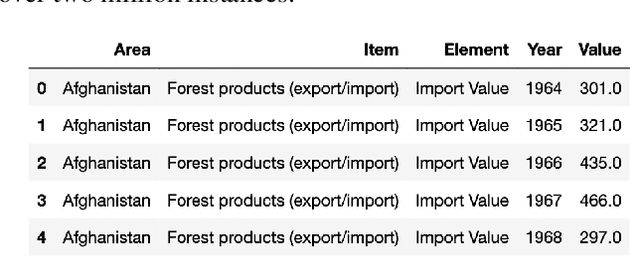
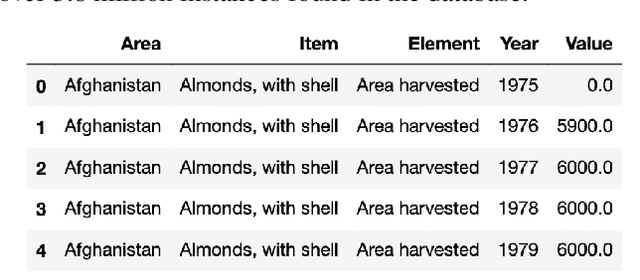
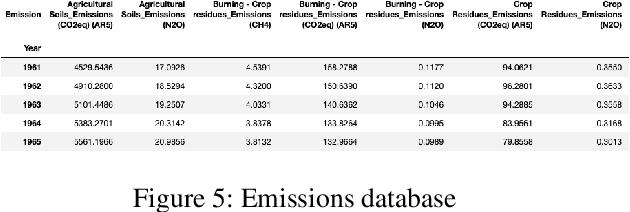
Abstract:With exponential growth in the human population, it is vital to conserve natural resources without compromising on producing enough food to feed everyone. Doing so can improve people's livelihoods, health, and ecosystems for the present and future generations. Sustainable development, a paradigm of the United Nations, is rooted in food, crop, livestock, forest, population, and even the emission of gases. By understanding the overall usage of natural resources in different countries in the past, it is possible to forecast the demand in each country. The proposed solution consists of implementing a machine learning system using a statistical regression model that can predict the top k products that would endure a shortage in each country in a specific period in the future. The prediction performance in terms of absolute error and root mean square error show promising results due to its low errors. This solution could help organizations and manufacturers understand the productivity and sustainability needed to satisfy the global demand.
Personalized Emotion Detection using IoT and Machine Learning
Sep 14, 2022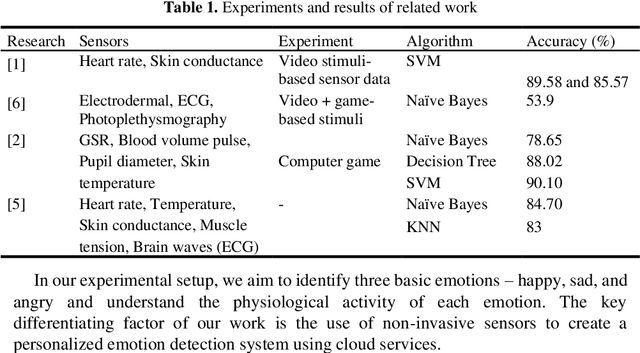
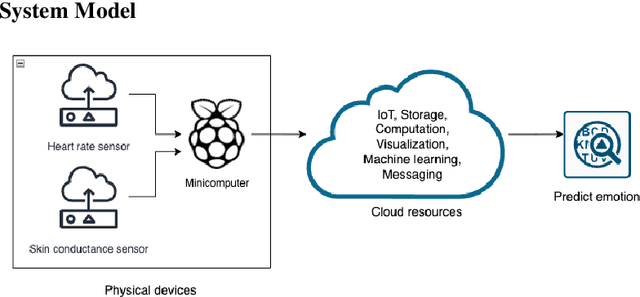
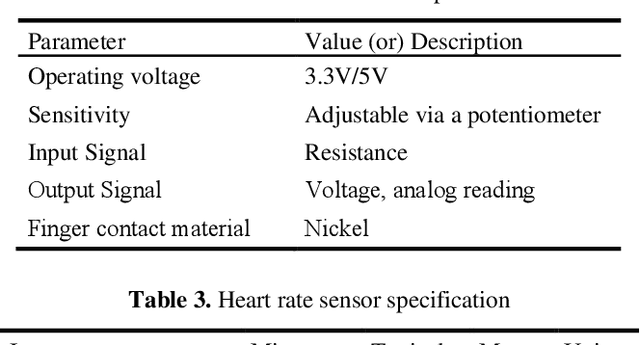

Abstract:The Medical Internet of Things, a recent technological advancement in medicine, is incredibly helpful in providing real-time monitoring of health metrics. This paper presents a non-invasive IoT system that tracks patients' emotions, especially those with autism spectrum disorder. With a few affordable sensors and cloud computing services, the individual's heart rates are monitored and analyzed to study the effects of changes in sweat and heartbeats per minute for different emotions. Under normal resting conditions of the individual, the proposed system could detect the right emotion using machine learning algorithms with a performance of up to 92% accuracy. The result of the proposed approach is comparable with the state-of-the-art solutions in medical IoT.
 Add to Chrome
Add to Chrome Add to Firefox
Add to Firefox Add to Edge
Add to Edge